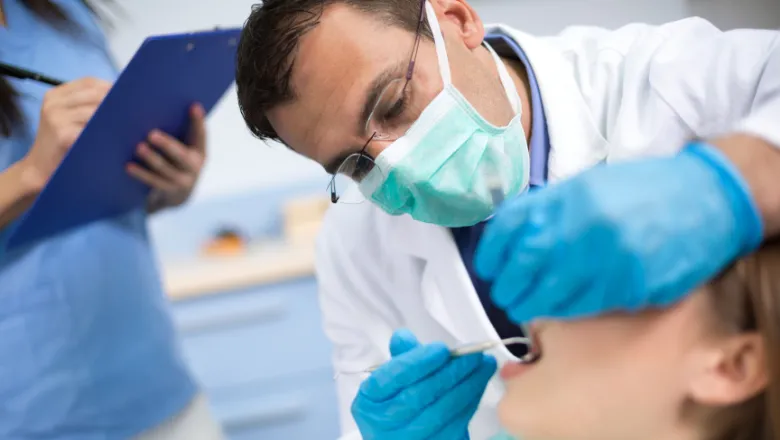A new study from King's College London has revealed that artificial intelligence (AI) automatic speech recognition (ASR) tools could dramatically improve how dental professionals record patient information-saving time and reducing administrative burden.

However, whilst transcriptional accuracy of these tools is high, they can struggle with more technical language, and their reliability is not currently sufficient to support unreviewed use.
The findings were recently published in the Journal of Dental Research. Researchers tested ten different ASR systems to see how well they could transcribe spoken orthodontic clinical records into written text. The best-performing system was an experimental pipeline combining OpenAI's GPT-4o transcription with a large language model for error correction, closely followed by the Heidi Health digital scribe and GPT4oTranscribe speech-to-text application programming interface.
Why this matters:
- Dentists spend significant time typing up clinical notes often during the consultation, which can reduce face-to-face time with patients.
- ASR tools can allow clinicians to dictate their clinical notes naturally, freeing them up to focus more on direct interaction with the patient.
- The most advanced systems were faster and more accurate than manual typing, with up to 60% in time savings.
Key findings:
- The AI-enhanced experimental pipeline (GPT4oTranscribeCorrected) had the lowest error rate, especially with technical dental terms.
- Commercial systems like Heidi Health also performed well, but others-such as Dragon Anywhere-had high error rates and even introduced clinically significant mistakes.
- Background noise and accent had minimal impact on the best systems, making them suitable for real-world clinical settings.
Caution remains: While the technology is promising, researchers warn that clinically significant errors-such as misidentifying teeth or treatment plans-can still occur. They recommend a "human-in-the-loop" approach, where clinicians review and edit transcripts rather than relying on them blindly.
Lead author Ruairi O'Kane said:
"AI speech tools can streamline documentation and improve efficiency, but we must remain vigilant. Even subtle transcription errors can potentially impact patient care."
What's next? The team suggests future systems should include confidence indicators to flag uncertain terms and be trained on larger, more diverse dental datasets. Ultimately, the goal is to help clinicians become editors of their notes-not just authors-while maintaining safety and accuracy.
Lead author Ruairí O'Kane is currently a DCT ACF working in the Centre for Craniofacial & Regenerative Biology at King's College London, under the supervision of Martyn Cobourne and Jeremy Green.
This study has been awarded the NIHR Integrated Academic Training Poster Prize across KHP at the inaugural KCATO Research Symposium, Best Clinical Presentation (DCT category) at the London, Kent, Surrey, Sussex NHS England Deanery event, and the British Orthodontic Society's BOC Aspiring Orthodontist Poster Prize at the recent British Orthodontic Conference.






